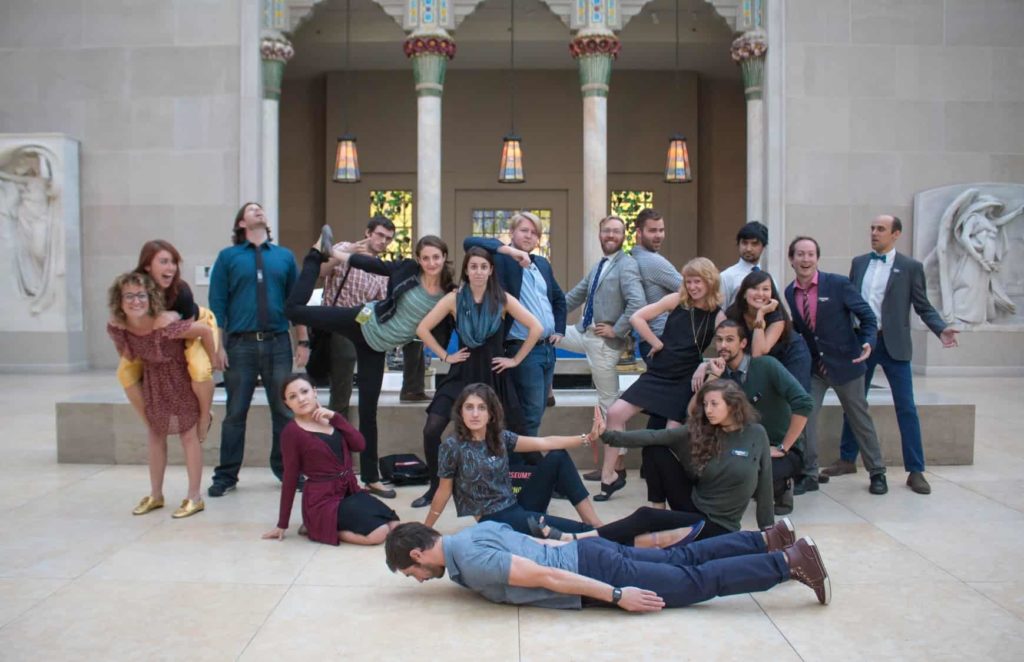Last updated: January 18, 2023
I love hiring great people.
But, damn: it is really time-consuming and energy draining.
I just counted: as of this morning, we have 13 full-time employees, 45 part-time employees, and many great contractors who all help to make the Museum Hack magic.
When we first started to hire tour guides and operations staff, we knew we wanted to cast a very wide net to find the best and brightest candidates.
Because we’re a fun place to work with flexible hours inside some of the best museums in the world, we also knew that our “Renegade Tour Guide” job would be in high demand by job seekers. It didn’t hurt the position paid $32 an hour.
We needed a way to filter and find the best candidates quickly.

A core specialty of our company is designing team building experiences, storytelling workshops and other training events for growing companies.
These experiences rely heavily on using effective stories and questions to help our guests laugh, open up, and share their own perspective.
I want to share how we use a similar “system” to hire our own team and some of the unique and innovative methods we’ve used to improve the hiring process.
These techniques are something you can use immediately in your own small business hiring process. You will see immediate results.
Our Hiring Secret Sauce
Nope, it’s not a 5 question quiz or making applicants create an elaborate self-promotion video.
It’s actually something super simple.
Relevant screening questions!
Screening questions specifically listed directly on the job application to help streamline the process, allow us to make decisions faster, and qualify the best applicants right out of the gate.
Two examples that we use regularly:
- What makes you unique?
- What is your typing speed?
Both of these questions help us screen for a company culture fit and for raw skill or competency.
If a candidate doesn’t meet our expectations with these answers, we can easily disqualify them.
How are screening questions different from standard interview questions?
First and most important, we make these a part of the application process.
We do not have to schedule a call or wait for follow-up emails, to find this information.
Your screening questions should either:
- Provoke thoughtful answers from the applicant, or
- Gather important quantitative information
These are designed to save you time from having to ask the same questions later.
Adding screening questions at the time of resume submission allows you to more easily filter candidates in a batch processing method.
I fucking love screening questions.
Why not just rely on their resume, experience, or a phone interview?
You still will rely on an applicant’s resume and phone interview.
But screening questions are used before an interview is even set up, at the point of origin when a resume is submitted.
They can be the same questions you might ask in an initial interview, but we try to pick ones that have short, distinct answers.
This makes them super easy to review.
Specific questions designed to screen out applicants who don’t fit, whether or not they have the required experience or not, cut down on resume reading time.
Museum Hack uses this step to help us sift through a large quantity of applications.
There are a lot of resources on how to actually engineer your own screening questions. Today I’m only writing about why I love them, why we use them, and sample screening questions from another hot startup.
How to Get Over 200 Applicants Per Job Listing

Whenever we post a job at Museum Hack, it is our goal to get as many applicants as possible.
We want to cast a very very wide net and then filter for the best.
Screening questions are really the first line of defense for weeding out applicants that don’t qualify for a position. Screening (or knock out questions as we refer to them) questions allow hiring companies to automate the review process. – Allan, JazzHR
Most of the jobs we post receive over 200 applicants. Some of our remote customer service jobs have over 800 applicants. Going through that many applications can be time-consuming and really get us off track from our mission.
How Do We Get So Many Applicants?
- We share our post everywhere we can online: Craigslist, Indeed, Facebook, LinkedIn, Twitter, FlexJobs, etc.
- We often do paid promotions on specific hiring sites to extend our reach.
- We point all of those applications to our applicant tracking system, a centralized place to store job applicant information like cover letters and resumes.
- We use web-based software called JazzHR as our applicant tracking system and are very happy with it. Not a sponsored post; I’ve used their software for 6+ years even back in the Flight Display Systems days when I setup our hiring system there. You see my interview with Allan from JazzHR below!
- For critical hires, we create custom landing pages that “sell” the job to potential candidates.
How Museum Hack Uses Screening Questions
Over 200 applicants for every job posting at Museum Hack.
How do we read all of those resumes?
We don’t!
We use screening questions to filter the candidates.
These screening questions allow us to immediately disqualify some candidates, either based on quantitative results – such as a typing test score – or on qualitative results – such as a poorly written cover letter.
We read all cover letters, by the way. Customized letters that are well-written and speak to our company attitude get a positive vote. Spelling errors and poor grammar or punctuation are grounds for immediate rejection.
While this might feel unfair in some instances, and the system is certainly not perfect, we believe our screening process makes things as fair as possible while still allowing us to interview some of the best candidates possible.
Screening questions also help:
- Filter out applicants who may not meet basic, but important, criteria for a job posting — such as work authorization status
- Qualify fit for company culture
- Immediately show if an applicant’s skills match a position
- Require leg-work and critical thinking from applicant

I spoke with two Museum Hack team members to get some insight on the hiring process and why these questions are so important.
First, I spoke with Tamara, our HR and Accounting Representative at Museum Hack.
Tamara said she tries to include questions in these three general categories for any job:
- Experience-based questions
- Scenario questions
- Remote experience for remote jobs, like our Customer Service, Sales, and Marketing teams
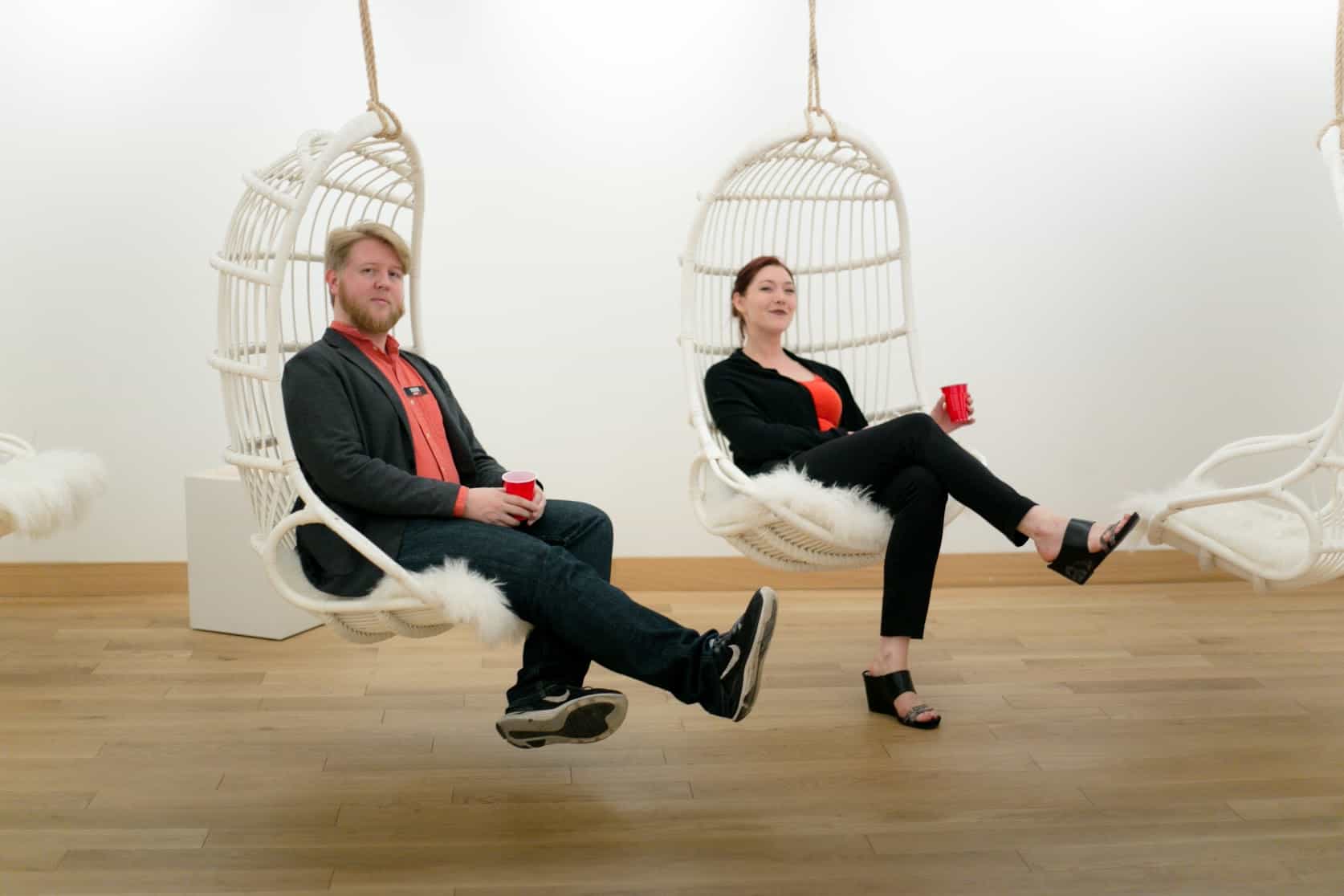
Screening Questions for Sales Positions
Tamara gave me some examples of questions she uses for hiring in Sales and Customer Service.
- Do you have B2B sales experience?
- How long have you worked in B2B sales? If you’ve never done B2B sales, how long have you been in sales or why do you think you’d be successful in Sales?
- What service have you sold that’s most like Museum Hack’s? Why / how was it like Museum Hack’s?
- What is your 16personalities.com personality type?
- A client request comes in and is interested in a team building event. You call them based on the phone number in their email signature, and they answer. What do you say on the call?
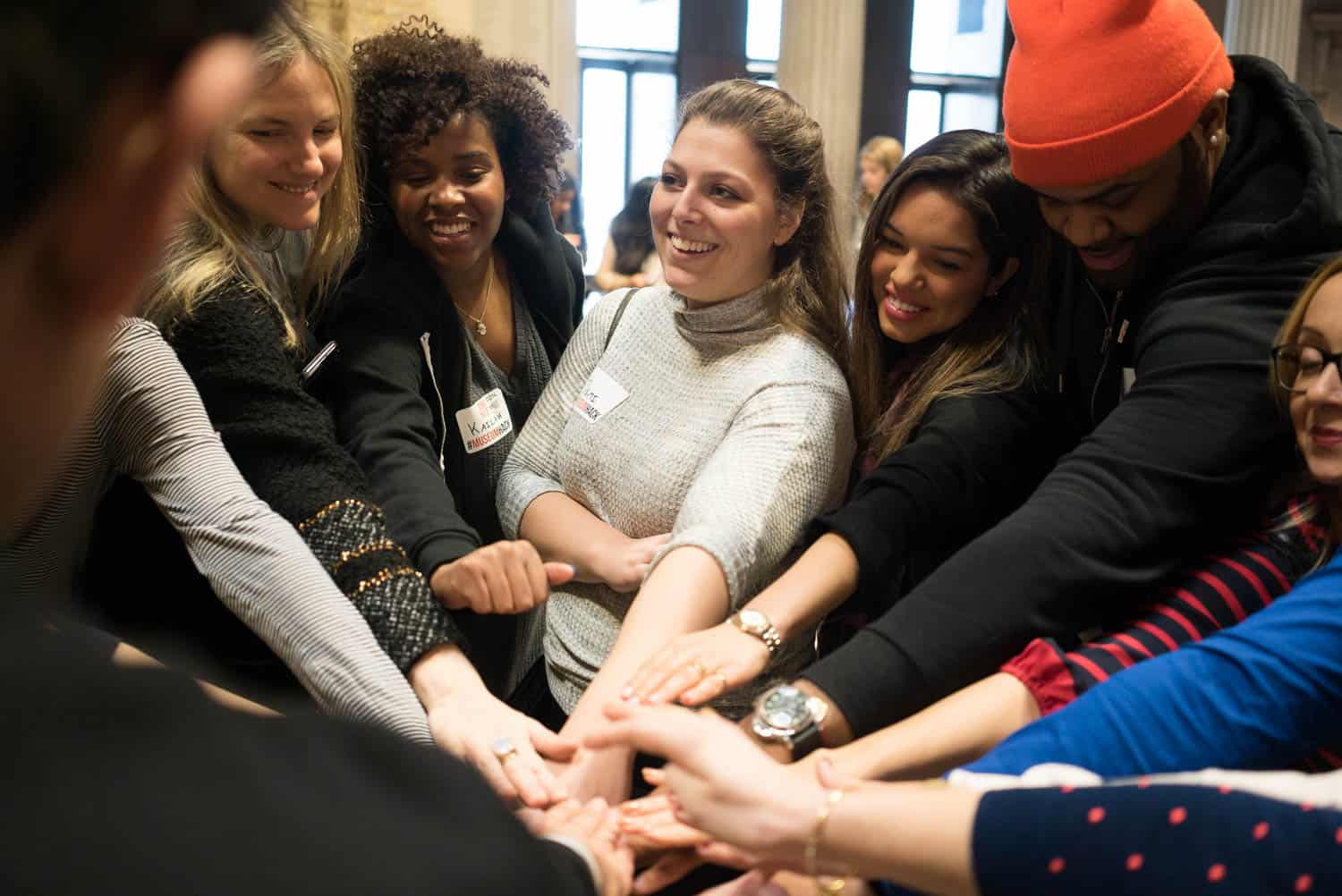
Screening Questions for Customer Service Positions
- We just received an email from Mike. Mike is booked on a private museum tour this afternoon and wants a refund. Our policy, which Mike agreed to when he booked his ticket, prohibits refunds unless we have at least 48 hours’ notice. Please write your reply to Mike’s request.
- What is your 1-minute adjusted typing speed from TypingTest.com?
- Do you have experience working remotely? If yes, please describe. If not, what does your self-management look like?
Qualifying for Company Culture and Technical Skills
Next, I talked to Michael, who is our Director of Marketing for Museum Hack. He had some things to say about why screening questions to qualify technical skills and company culture are important.
Michael talked about how questions, like the ones below, are great for getting applicants to show some of their personality. This is an easy way for us to see if applicants will fit in with our company culture.
Tell the applicant that there’s a character or word limit for some questions. It helps prevent fluff and filler answers.

Questions to qualify for culture fit
-
- In 140 characters or less, what makes you unique?
- Tell us about your favorite museum.
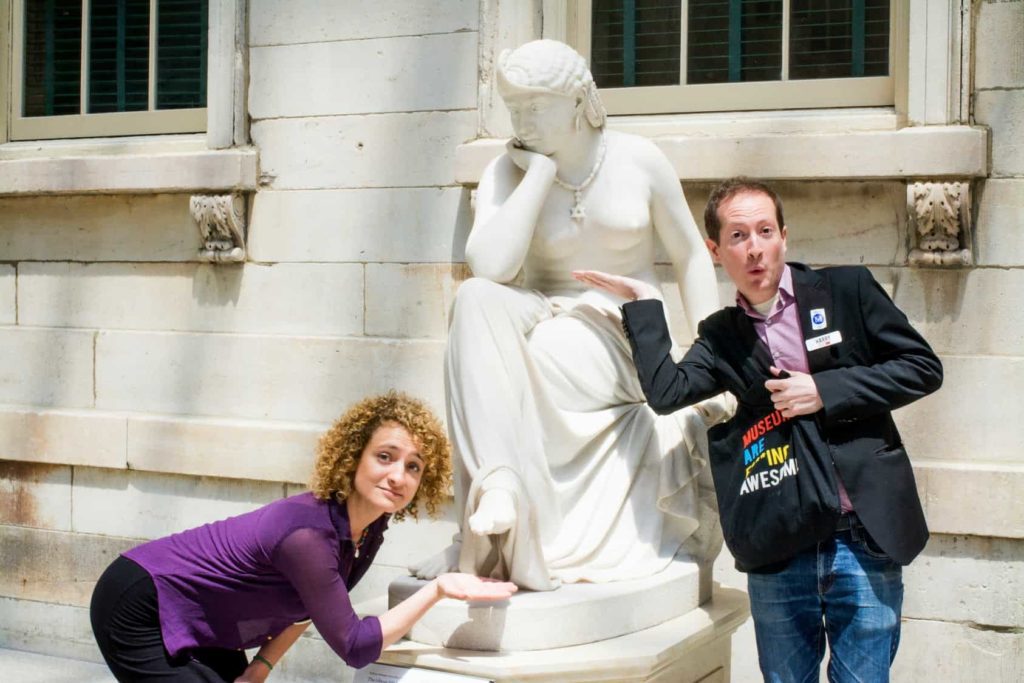
Here are some of the culture fit answers from people Museum Hack has hired:
- I’m the world’s premier impersonator of Canadian former astronaut Chris Hadfield.
- My Ray-Bans are knockoffs, purchased for $3 on the street in Istanbul. I learned to tie a bow tie from an iPad app. Everything’s got a story.
- I was raised on an isolated mountain in rural Maine. I also wear a lot of broken watches, and I love spinach. (Nick’s Note: this employee must be pro base-layer)
- I know how to clap in the right way to make a room full of chatting 7-year-olds silent, I own 7 pairs of colored pants and my homemade fudge RULES.
How Do Other Companies Use Screening Questions?
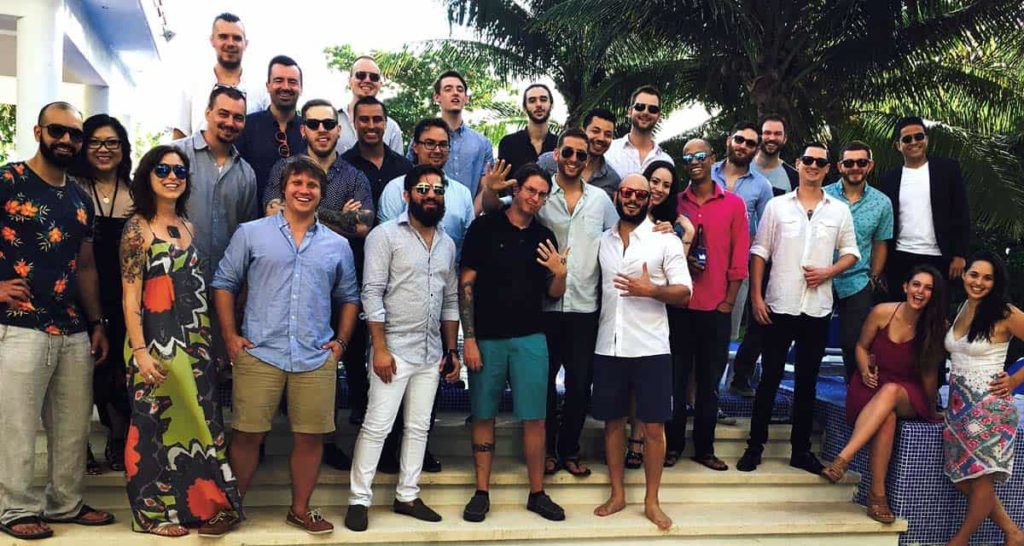
Do other companies do this? What do they ask?
I spoke with Samantha Logue, Director of People at Sumo. Sumo is a company that has great tools for helping people collect emails and grow their websites. At Sumo it’s very important that all candidates be screened for culture fit, company fit, and team fit.
Sumo uses a variety of questions on their applications, which you can see below:
Sumo’s Screening Questions for Business/Sales Positions
- Have you been in Business Development before?
- What are you most proud of accomplishing?
- What is the URL to your LinkedIn profile in the following format https://www.linkedin.com/in/aalab003/
- Our inbound leads dry up. Please list the exact 10 customers you’d reach out to sell SumoMe to.
- We get 10,000 new signups a week, how would you prioritize which ones to reach out to?
- What are you most proud of accomplishing?
Sumo’s Screening Questions for Marketing Positions
- What would you want to gain from this job?
- Please link to a site you’ve used Sumo on (if you haven’t, now’s your chance).
- Link us to the three articles you’re most proud of.
- Have you led a team? If so, what size?
- There are many channels to utilize for marketing purposes. How would you prioritize which ones to use?
- We have a new product coming out in three months. What are the first 3 steps you would do to launch it?

Sumo’s Screening Questions for Customer Success Positions
- What is your typing speed? (Post the # from https://www.typingtest.com)
- Have you done customer success before and at what volume?
- You have 2 available Success Agents that have to handle scheduled Live optimizations that come through the sales team as well as emergency paid assistance that comes in on the day of. How do you prioritize this?
- We get 10,000 new signups a week, how would you prioritize which ones to reach out to?
- How would you respond to this? “Hey. I installed Sumo but it’s not appearing on my site. What should I do??? -Dissatisfied Sam
Sumo’s Screening Questions for Knowledgebase / Technical Positions
- We push new features as well as existing feature improvements and changes weekly. How would you prioritize which Knowledgebase edits to make?
- Do you prefer long form guides over short form lessons for customers to learn how to use a product?
- We are hiring a javascript developer. What are the first 5 things you’d do to find someone to hire?
- Tell us something funny =)
Thank you for sharing this with us, Sumo! See their open jobs here.
What other great companies are using screening questions? Email me and let me know.
How We Use Applicant Tracking Software
This entire screening question method would not work without an applicant tracking system to centralize all of your resumes.
We use web-based software called JazzHR for our hiring process.
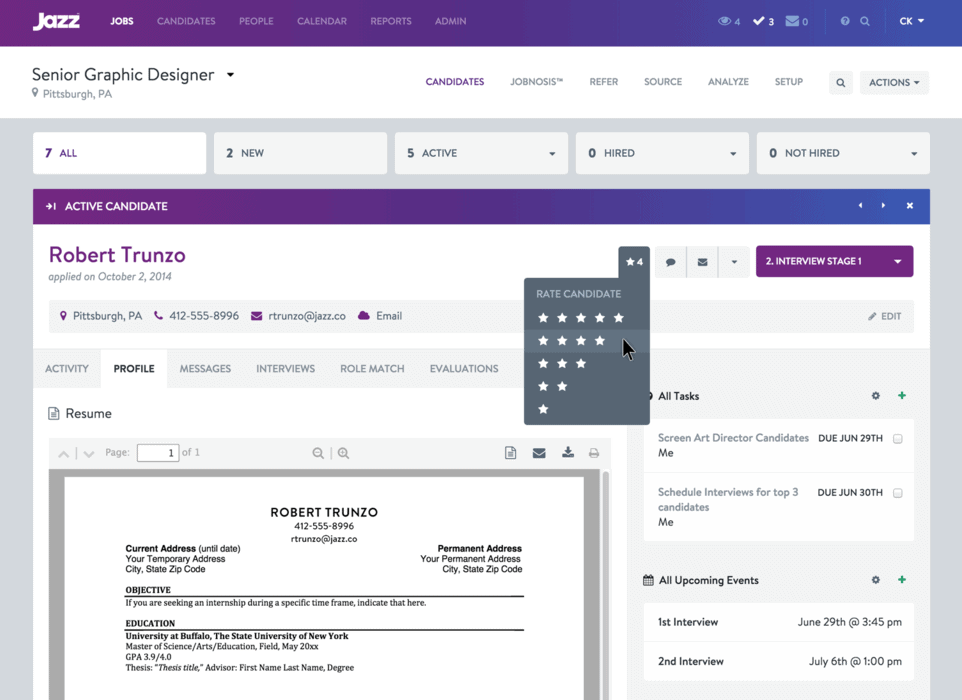
Jazz has been around since 2009 and was formerly called TheResumator. It is a powerful, user-friendly and affordable recruiting software solution — starts at around $40/mo and then jumps to $200/mo for more features.
I can confidently say that using an applicant tracking system was one of the very best investments we’ve ever made in our company.
I swear this isn’t a sponsored post by Jazz. To prove that this isn’t a sponsored post, here are some competitors and alternate options: Greenhouse, Workable, Zoho Recruit, Breezy.
I spoke with Allan Maguire who is the Director of Digital Marketing at JazzHR to find more about how they use screening questions.
Q: How do you come up with screening questions?
From our JazzHR customers. We do a lot of outreach to our customers to better understand how we can improve. We ask questions about both our existing functionality as well as what else people really want to see. The insight they have given us has been invaluable.
Our customers are the most important thing to us, which is why we have invested heavily in our customer support, and that has really paid off for us. This was the most requested functionality from our existing customers and since introducing it, we have seen that a majority of them have already adopted screening questions into their normal recruiting process.
Q: Our favorite question we list on our Jazz applications: “What makes you unique?” Did you come up with this question? What’s the history behind it?
A: I’m not sure we can take all the credit for being the first to use this question but this is really something that stems from how we look at our business. We are always asking “what makes us unique?” and that question drives us to push past the limits of more “vanilla” applicant tracking systems and recruiting software.
We don’t want to be a “me too” business and when we ask the question in our own hiring process about what makes someone unique, we don’t want to hire a “me too” person. We live in the “hiring” world, we’ve seen the impact a bad hire can have on a company, but we’ve also seen what a great hire can do.
We believe a great hire truly stands out from the crowd, that someone has some intangible uniqueness that will make the company better, and just as importantly, that this person is someone that our team will enjoy working with. We’ve used the uniqueness of our JazzHR family to help shape the culture of the company and made it what it is today.
Thanks for answering our questions Allan!
Caution: Screening Questions Are Context Specific
Not all positions can effectively use all screening questions.
For example, we would not screen our tour guides for typing speeds.
And we wouldn’t screen our sales team with a question about customer service best practices.
The Cover Letter
While we don’t read every single resume, we do read almost every single cover letter.
I’m not sure if other companies do this, but the cover letter for us allows us to see if someone is copy-pasting their job application or if they really do have a passion and interest in working at Museum Hack.
The cover letter allows us to see the person as a writer. We have accepted applicants to the next phase of the interview who have very short cover letters. But saying something like “See resume” or “N/A” for your cover letter is grounds for immediate rejection.
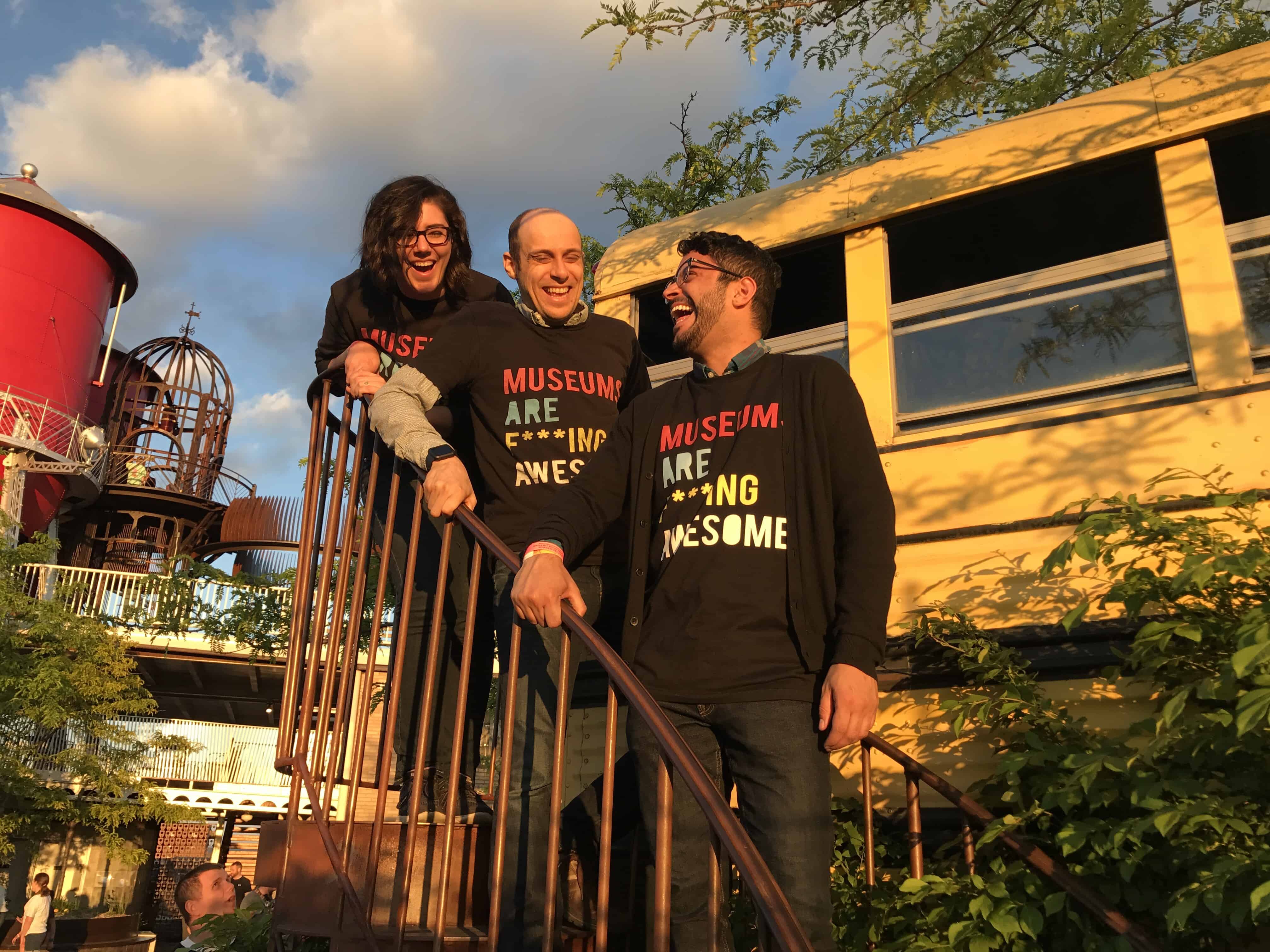
Conclusion
Screening questions are simple to add.
They’ll help pare down the number of quality applicants and can even help you search for a specific skill set.
Screening questions are also effective because they give the applicant a better chance to tell their story that doesn’t follow their route script.
Do you use screening questions at your company? Is this something that could help you find better applicants? Let me know what you think! Email me or leave a comment.
***
Comments
- Nina Simon: Great post, Nick. We require applicants to fill out a job-specific application at the MAH (involving real tasks). It takes 3-5 hours to complete. It works super-well for identifying diverse talent – especially for people with unorthodox backgrounds and employment history. The downside is that applications take a long time to complete, so some people opt out. Our theory is if you really want the job, you’ll put in the work, but reading your post makes me wonder if we should consider some screening questions at the front end, followed by an application for people who pass screening. We mostly ignore resumes when winnowing people down – we use them more to target specific interview questions related to past behavior and activities.

